BoE holds interest rate at 0.5% and upgrades growth forecast
But analysts predict rate rise as soon as May
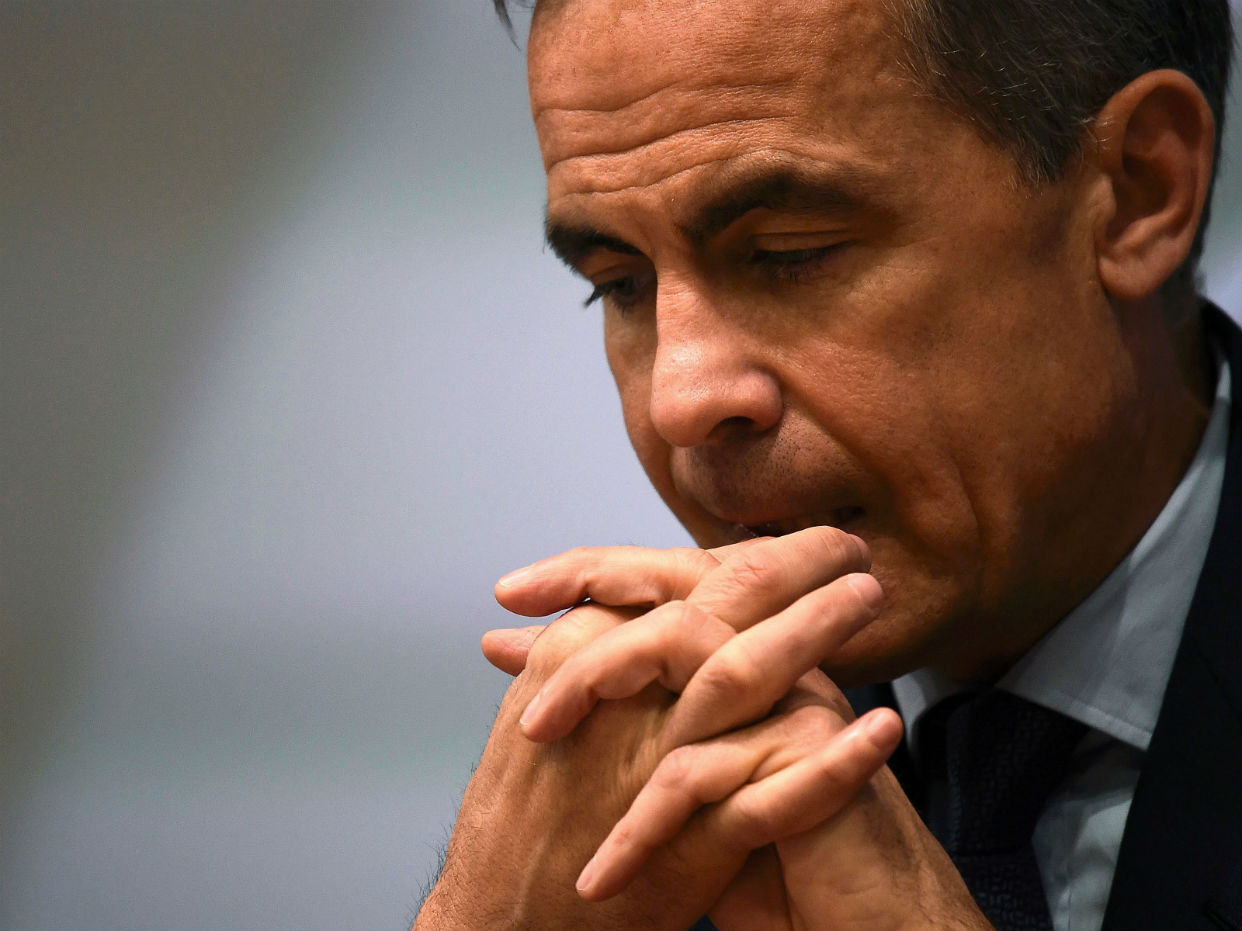
A free daily email with the biggest news stories of the day – and the best features from TheWeek.com
You are now subscribed
Your newsletter sign-up was successful
The Bank of England has upped its growth forecast for the UK economy and voted 9-0 to keep interest rates at 0.5% - but hinted that rates may rise sooner and more sharply than expected.
Economists expect the next interest rate hike to come as soon as May, to dampen the impact of a stronger global economy on UK inflation, the BBC says. The Bank’s key interest rate has remained unchanged since November, when it was raised for the first time in more than a decade.
PwC senior economic adviser Andrew Sentance told Reuters that the UK will probably “see at least one quarter point rise in 2018 and possibly two or three”.
The Week
Escape your echo chamber. Get the facts behind the news, plus analysis from multiple perspectives.

Sign up for The Week's Free Newsletters
From our morning news briefing to a weekly Good News Newsletter, get the best of The Week delivered directly to your inbox.
From our morning news briefing to a weekly Good News Newsletter, get the best of The Week delivered directly to your inbox.
Sterling spiked against the US dollar following today’s news, “as higher rates in an economy tend to favour the local currency with the anticipation of more investment”, CNBC says. The pound hit almost 1.400 against the dollar, trading close to 1.397 by mid-afternoon.
The BoE also released its Quarterly Inflation Report today, showing UK GDP is expected to expand by 1.7% in 2018 - up from its previous projection of 1.5% in November - and forecasting 2019 growth of 1.8%.
In an important caveat, the report says Brexit developments “remain the most significant influence on, and source of uncertainty about, the economic outlook”.
Nevertheless, BoE governor Mark Carney told reporters today that the Bank is confident in its ability to forecast the direction of the British economy despite the “uncertainty” caused by the “exceptional circumstances” surrounding the Brexit negotiations.
A free daily email with the biggest news stories of the day – and the best features from TheWeek.com
His “hawkish” comments pushed the pound higher and “encouraged” investors to sell British government debt, reports the Financial Times. Yields on two-year gilts rose to their highest level since 2015.
-
 Tourangelle-style pork with prunes recipe
Tourangelle-style pork with prunes recipeThe Week Recommends This traditional, rustic dish is a French classic
-
 The Epstein files: glimpses of a deeply disturbing world
The Epstein files: glimpses of a deeply disturbing worldIn the Spotlight Trove of released documents paint a picture of depravity and privilege in which men hold the cards, and women are powerless or peripheral
-
 Jeff Bezos: cutting the legs off The Washington Post
Jeff Bezos: cutting the legs off The Washington PostIn the Spotlight A stalwart of American journalism is a shadow of itself after swingeing cuts by its billionaire owner
-
 The end for central bank independence?
The end for central bank independence?The Explainer Trump’s war on the US Federal Reserve comes at a moment of global weakening in central bank authority
-
 Should Labour break manifesto pledge and raise taxes?
Should Labour break manifesto pledge and raise taxes?Today's Big Question There are ‘powerful’ fiscal arguments for an income tax rise but it could mean ‘game over’ for the government
-
 What are stablecoins, and why is the government so interested in them?
What are stablecoins, and why is the government so interested in them?The Explainer With the government backing calls for the regulation of certain cryptocurrencies, are stablecoins the future?
-
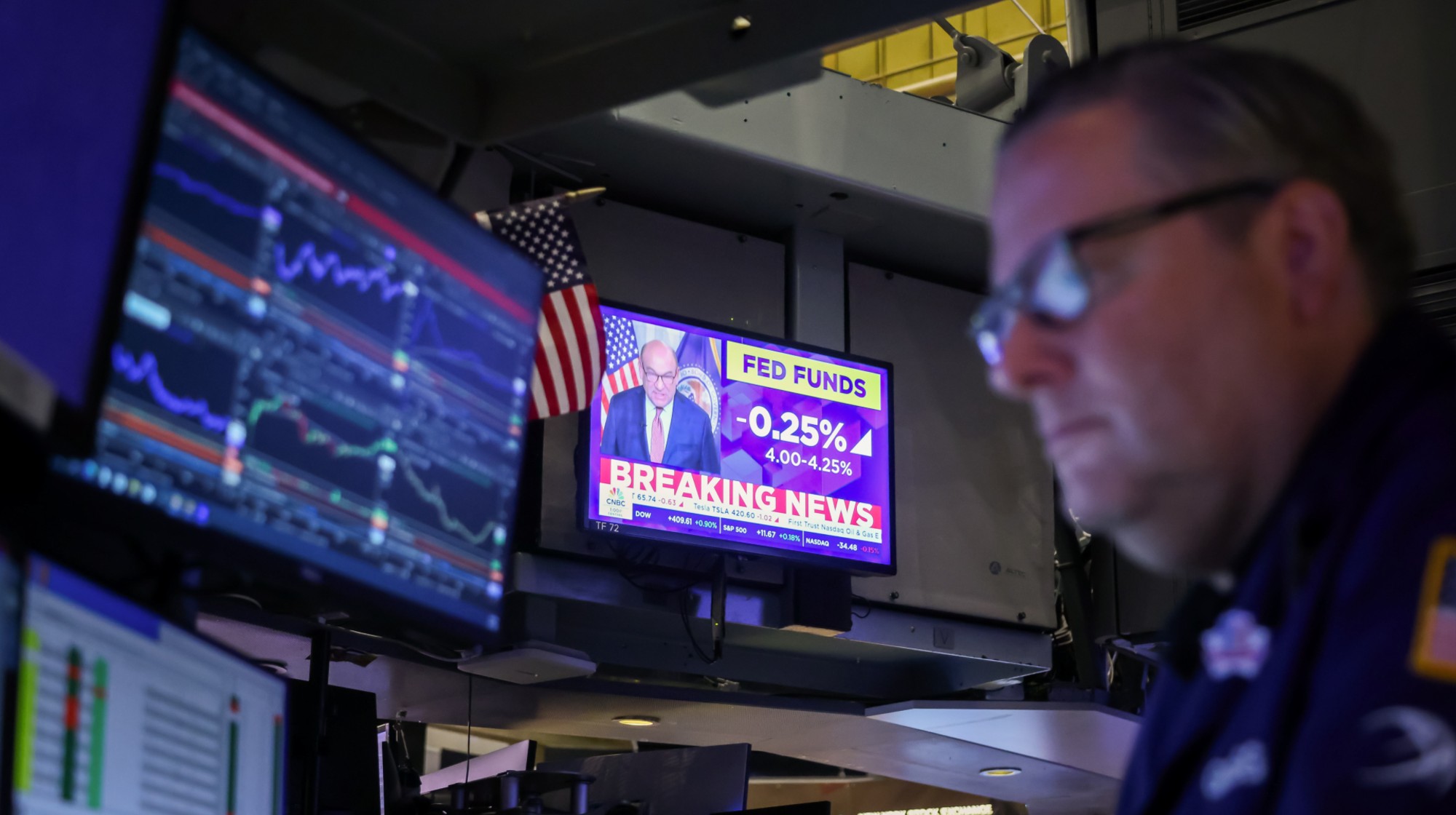 Fed cuts interest rates a quarter point
Fed cuts interest rates a quarter pointSpeed Read ‘The cut suggests a broader shift toward concern about cracks forming in the job market’
-
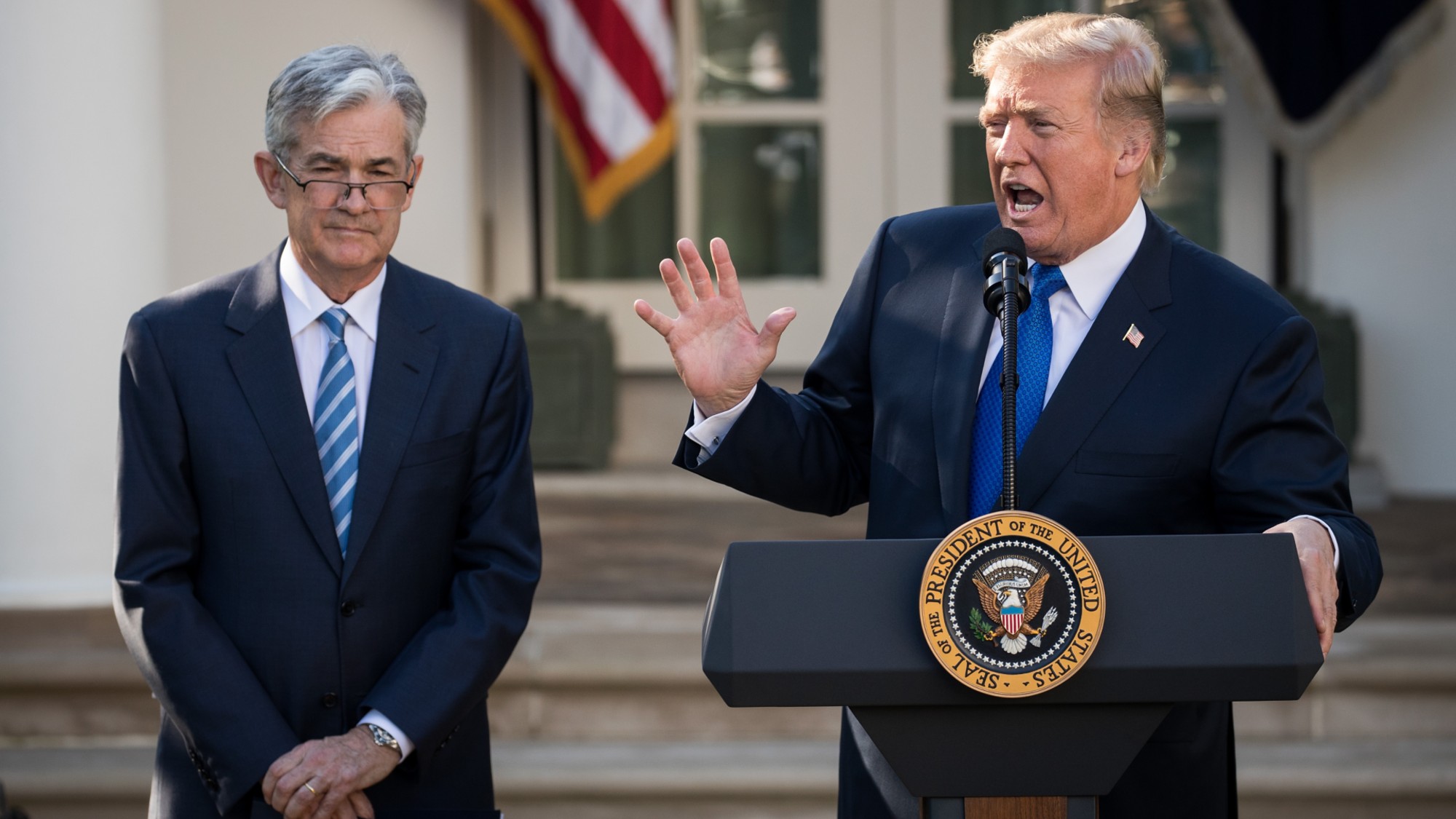 How will Wall Street react to the Trump-Powell showdown?
How will Wall Street react to the Trump-Powell showdown?Today's Big Question 'Market turmoil' seems likely
-
 Will Rachel Reeves have to raise taxes again?
Will Rachel Reeves have to raise taxes again?Today's Big Question Rising gilt yields and higher debt interest sound warning that Chancellor may miss her Budget borrowing targets
-
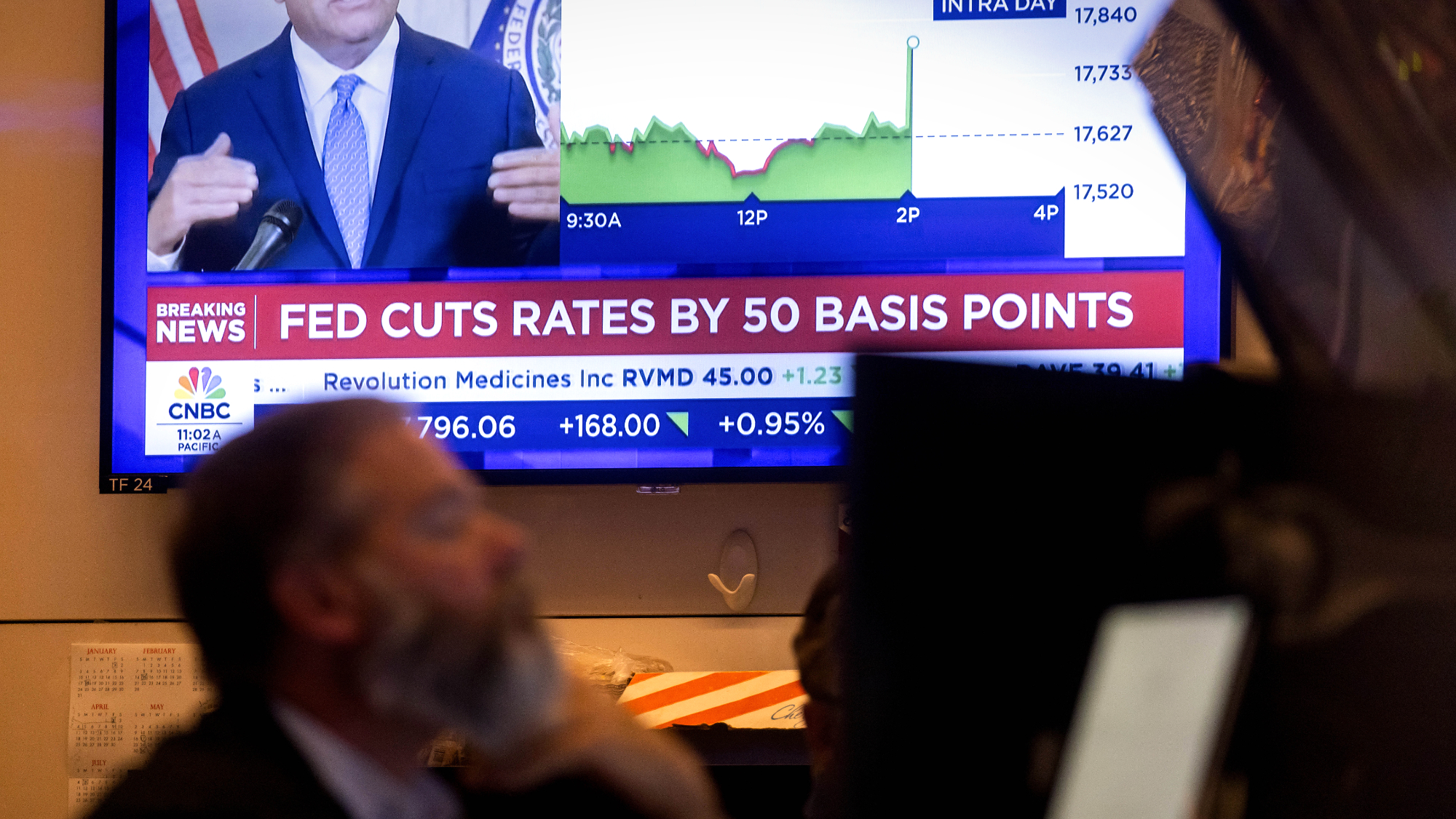 Fed cuts rates half a point, hinting victory on inflation
Fed cuts rates half a point, hinting victory on inflationSpeed Read This is the Fed's first cut in two years
-
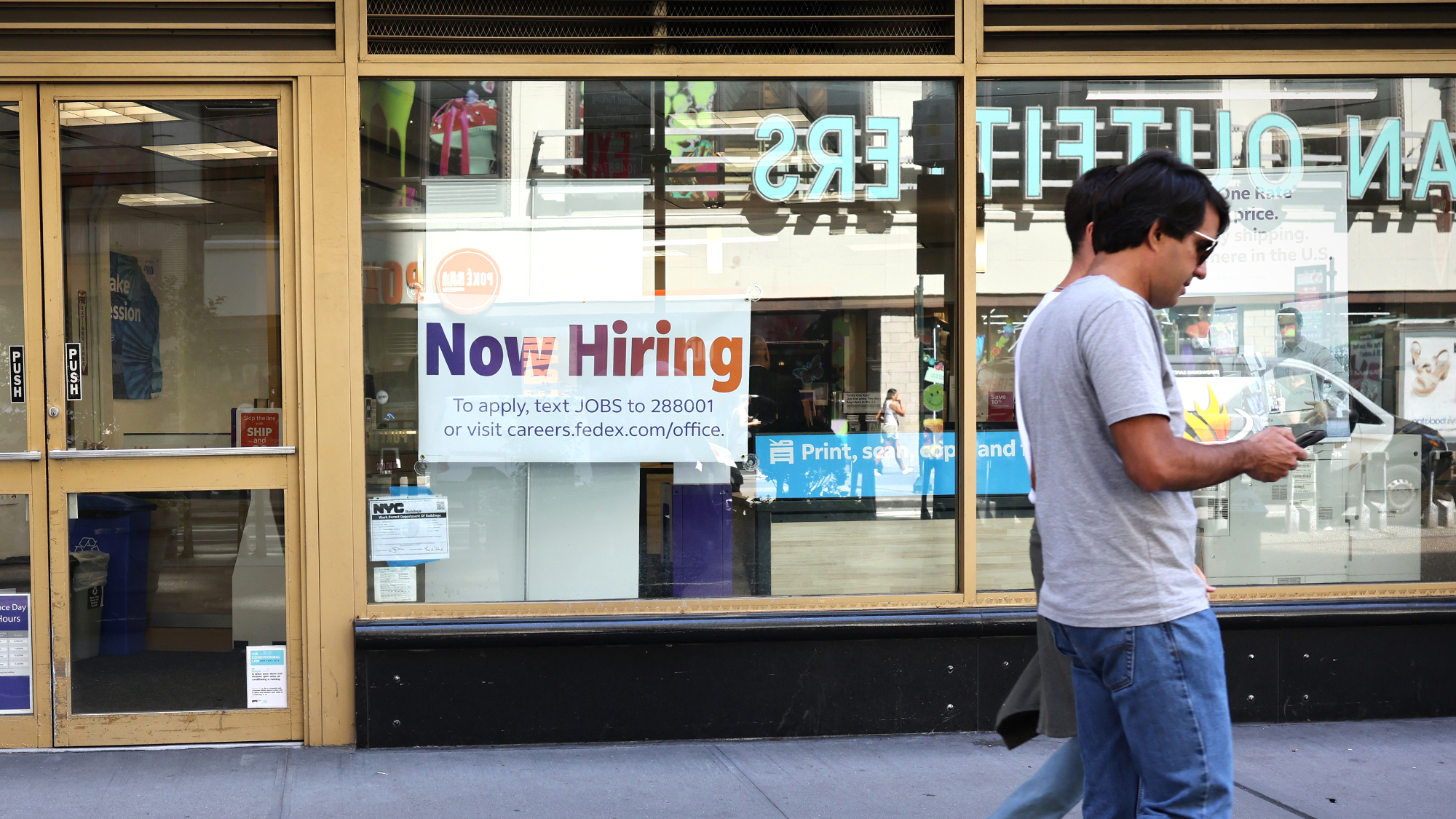 US job growth revised downward
US job growth revised downwardSpeed Read The US economy added 818,000 fewer jobs than first reported